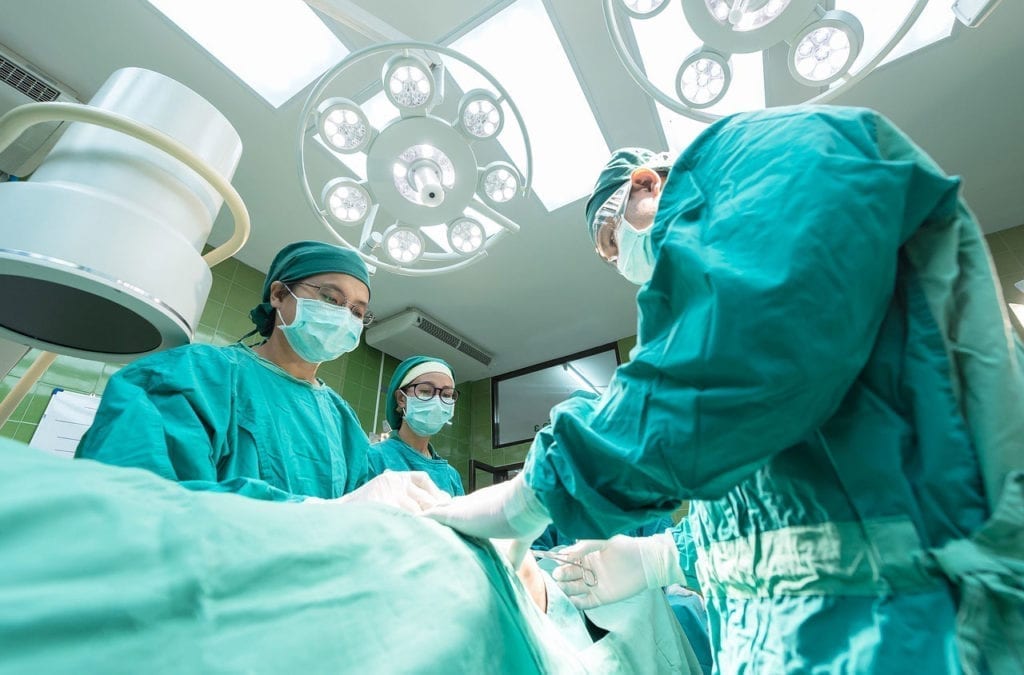In 2020, Dr. Paul Orchard, a pediatric blood and bone marrow transplant physician at M Health Fairview University of Minnesota Masonic Children’s Hospital, attended a medical conference that would change the course of his practice. During the conference, Dr. Orchard met the Goodin family, whose children – Grace (10) and Grant (8) – were both diagnosed with a rare lysosomal storage disorder called multiple sulfatase deficiency (MSD). Previously, Dr. Orchard had never treated any patients with MSD, as the condition is incredibly rare. But now, shares Fox9 News, Dr. Orchard and his team are the first doctors worldwide to ever treat patients with MSD using bone marrow transplants.
The Treatment
According to the Mayo Clinic, a bone marrow transplant is:
a procedure that infuses healthy blood-forming stem cells into your body to replace your damaged or diseased bone marrow. A bone marrow transplant is also called a stem cell transplant.
When Dr. Orchard met the Goodin family, he questioned whether they would consider attempting a bone marrow transplant. While potentially risky, this offered a new solution considering the fact that MSD currently has no available treatments. The Goodin family agreed and soon, both children received treatments.
Following the bone marrow transplant, the team at M Health evaluated and monitored the children for approximately 100 days. Although no clear data is available yet, both Grace and Grant are recovering well. Additionally, the treatment is relatively well-tolerated. The bone marrow transplant was sourced through the Be the Match Foundation, whose diverse bone marrow registry helps link patients to potential donors. Interested in learning more about Be the Match or how you can contribute? Check out the Be the Match Foundation website.
If you’re interested in following along on Grace and Grant’s journey, you can also take a look at “Grant Us Grace.”
Multiple Sulfatase Deficiency (MSD)
Multiple sulfatase deficiency (MSD) is an extremely rare genetic and metabolic disorder which impacts the brain, skeleton, and skin. Altogether, abnormal or misfunctioning sulfatase enzymes, resulting from SUMF1 gene mutations, cause MSD. Normally, these enzymes help break down mucopolysaccharides. But when these enzymes malfunction, it causes a wide range of systemic health issues. MSD is inherited in an autosomal recessive pattern, meaning a patient must receive one defective gene from each parent.
Typically, MSD occurs in one of three forms. While many patients do not live past a few years following diagnosis, mortality rate ultimately depends on how fast symptoms progress.
In the neonatal (and most severe) form, symptoms appear shortly after birth and become progressively worse. Symptoms include:
- Liver and spleen enlargement
- Scoliosis (abnormal spinal curvature)
- Hearing loss
- Excess hair growth
- Skeletal abnormalities
- Nervous system tissue deterioration
- Joint pain and stiffness
- Developmental delays
- Slowed growth
- Seizures
- Dry and scaly skin
Next comes late-infantile MSD, the most common form. In these patients, symptoms include:
- Normal cognitive development followed by progressive and rapid mental and motor deterioration
- Skeletal abnormalities
- Dry, scaly skin
Finally, juvenile MSD is the rarest form and often occurs in mid-to-late childhood. Similarly to the late-infantile form, patients develop normally before experiencing regression. The most common additional symptom is dry, scaly skin.
Additional symptoms associated with MSD include:
- Abnormal breast bone shape/development
- Deafness
- Rounded, heavy, or underdefined (“coarse”) facial features
- Micro- or macrocephaly
- Strabismus (abnormal eye alignment)
- Feeding difficulties
- Airway obstructions
- High blood pressure
- Overgrowth of gingival tissue
- Aspiration
- Recurrent pneumonia
- Osteopenia (weakened bones)







